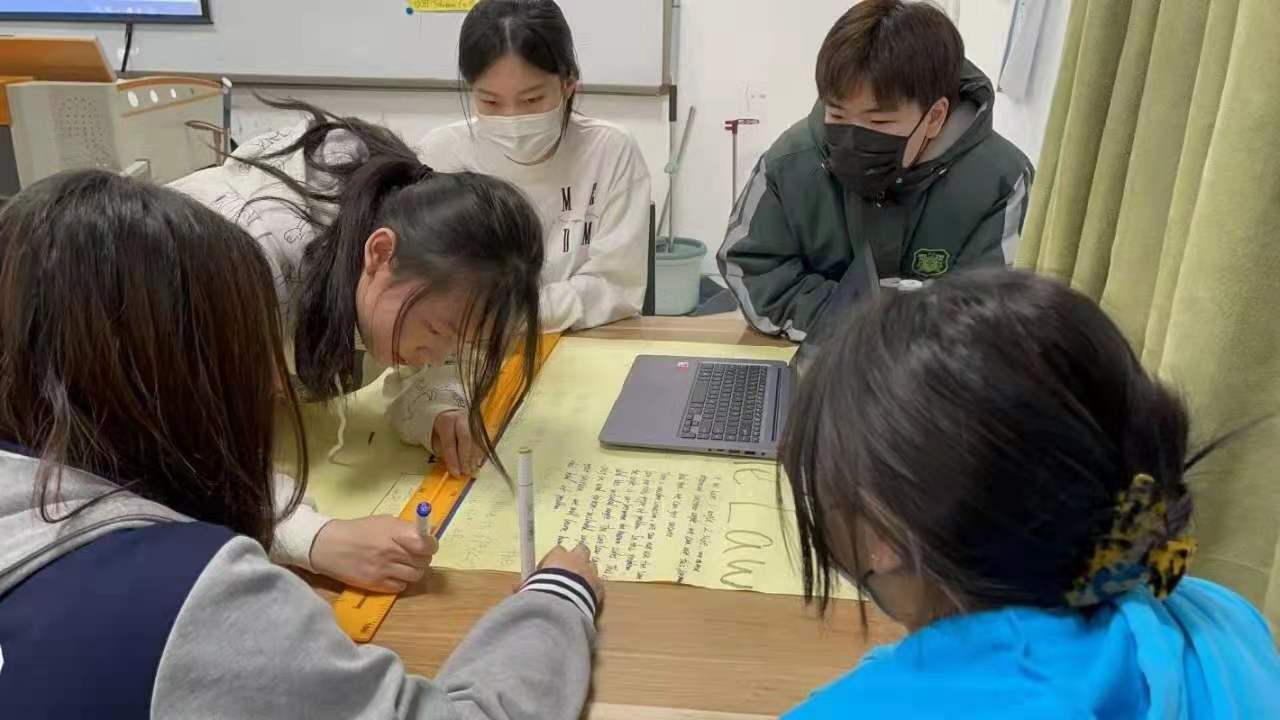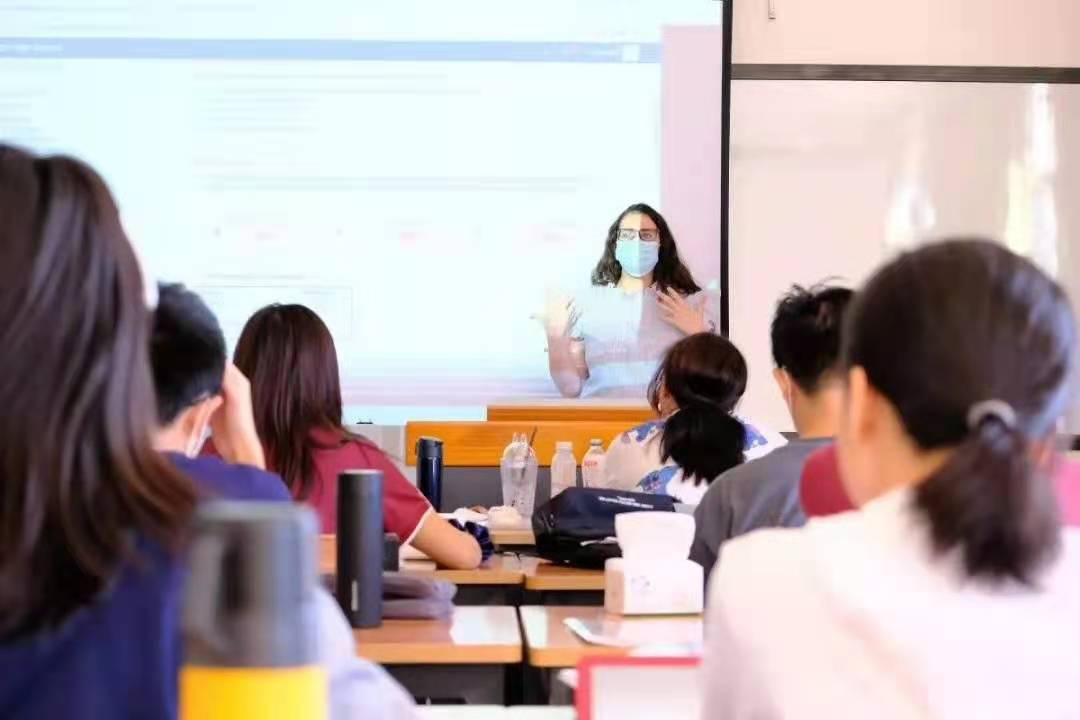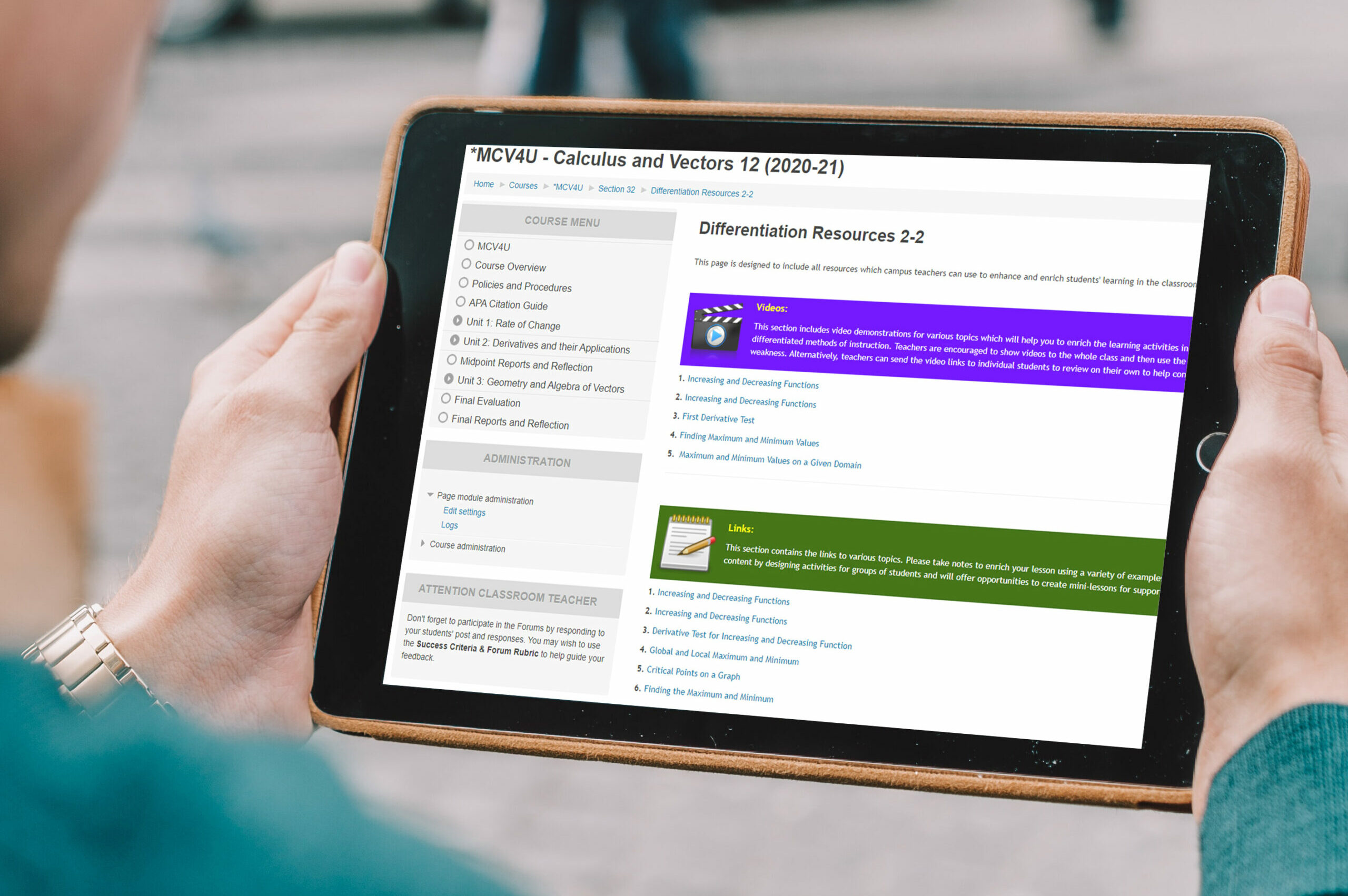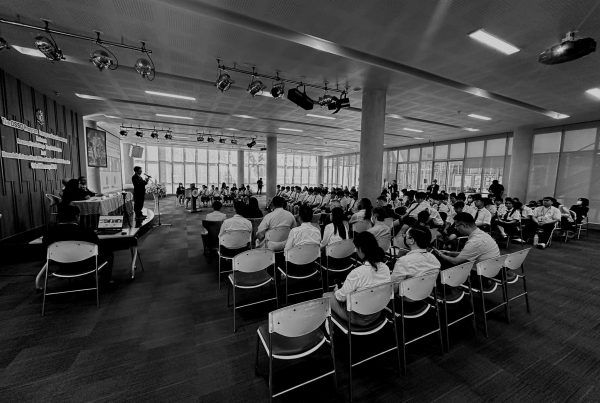Our curriculum focuses on five key areas: Transformative competency development; real-world application and innovation; global citizenship education; differentiated instruction and diverse evaluation; and the creation of a personalized learning path. Grounded in the curriculum expectations of the Ontario Ministry of Education’s Ontario Secondary School Diploma (OSSD), the curriculum is globally recognized as a leader in differentiated learning.
Designed by education sector experts and forward-thinking practitioners, Rosedale’s Transformative OSSD curriculum is research-based and reflective of industry best practice. Courses include innovative lessons, interactive activities, and assessments and evaluations that capture student achievement of curriculum expectations and transformative competencies. Through a unique delivery model, our curriculum leverages collaboration with educators in partner schools around the world and emphasizes quality teaching by providing comprehensive teacher development to ensure the delivery of transformative education to more students around the world—with life-changing learning outcomes.














